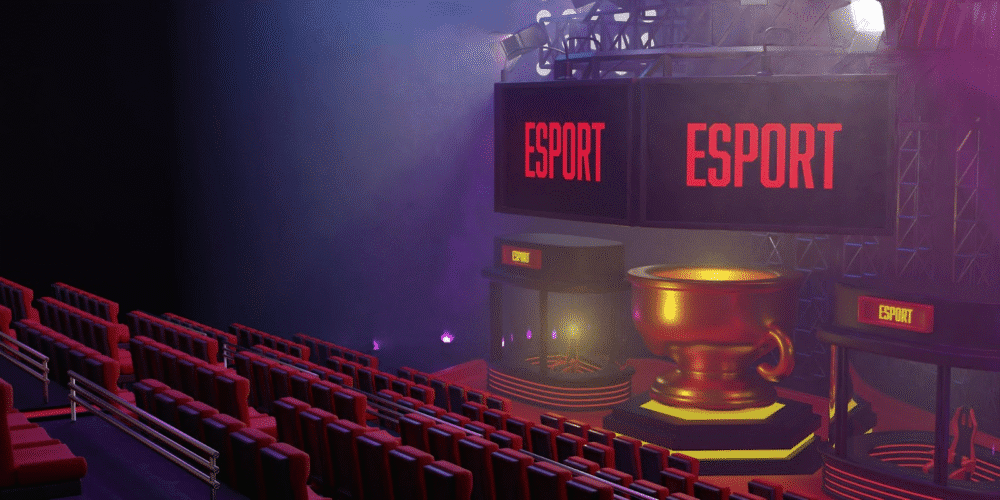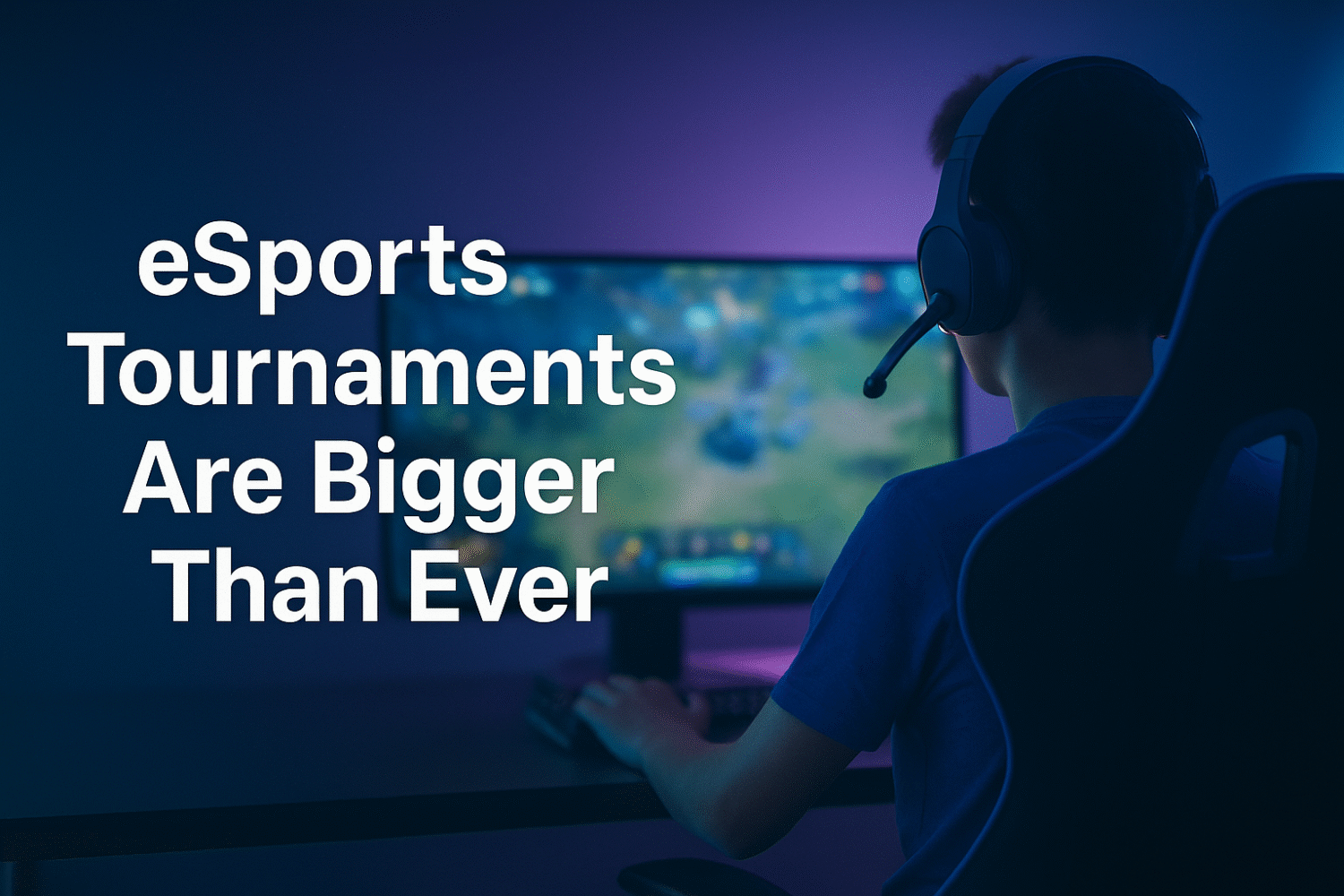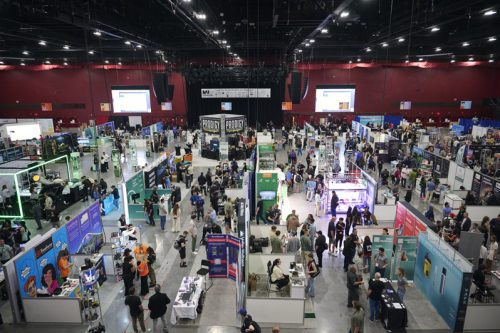Sponsored:
eSports has experienced lots of growth over the years, and 2025 is showing just how far it has come. Tournaments now draw millions of people across the globe, and top players are treated like professional athletes. For eSports tournaments, what started as small gatherings of gamers and enthusiasts has turned into a global industry, and it’s now opening doors to new career paths.
eSports Tournaments Are Bigger Than Ever

eSports in 2025 is not playing small anymore. Global viewership is projected to hit over 640 million people this year, with about 318 million being dedicated fans and the rest casual watchers. That kind of reach puts eSports in the same conversation as major traditional sports.
Take the eSports World Cup 2025 for instance. It grabbed headlines by setting new viewership records. During the period the tournament was hosted, reports reveal that about 750 million viewers were attracted worldwide. This shows how far the audience has grown.
On a tournament level, events are hitting peaks that once seemed impossible. For example, the BLAST.tv Austin Major in 2025 saw its opening day reach 475,544 peak concurrent viewers – a jump of about 23–25% compared to its predecessor event.
These numbers show that eSports is no longer a niche thing. It’s filling arenas, drawing massive online audiences, and becoming a major force in entertainment. And with all that growth, the demand for roles beyond just playing is rising fast, hence opening doors for people who want to join the eSports world in many different ways.
Emerging Careers Paths in eSports
Competitive gaming isn’t just about the pros you see on stage. Behind every big tournament is a whole team of people making sure things work. Because of this, plenty of career paths are opening up to people. Some of them which are growing really fast in 2025 include:
Event Managers and Organisers
Every major tournament needs people who can pull it all together. Because of the kind of growth eSports is experiencing recently, managers are needed to pull off its major events.
ESports event managers and organisers plan venues, schedules, and logistics. They make sure everything runs smoothly, from the lights and sound to the flow of the games.
Coaches
Just like in traditional sports, eSports teams rely on coaches. Yes, they need people to train players, review replays, and come up with strategies. Because of this, there have been more openings for coaches in the industry.
Broadcasters and Commentators
The excitement of a match comes alive through the voices of commentators. They explain the action, hype up key plays, and keep audiences engaged. Broadcasters work alongside them, handling the production that makes matches easy to follow.
Content Creators
Streaming platforms have made content creation one of the most important careers in eSports. Creators make highlight reels, guides, and live streams that keep fans connected long after the tournament ends.
Marketing and PR Specialists
eSports is big business, and teams need to attract sponsors. That is where marketing and PR professionals come in. They handle branding, social media, and partnerships. If you have ever imagined how players are managing to get in the face of everyone lately, that’s the work of the marketers and PR pros. They’re the ones ensuring both players and events get noticed.
Tech and Support Staff
Behind the screens, a lot of work goes into keeping games stable and fair. IT staff, referees, and support teams handle servers, resolve disputes, and ensure everything is above board. Without them, the tournaments simply couldn’t function.
eSports Cultivating Skills That Translate to Real Careers
One of the best things about eSports is how many useful skills it builds along the way. Even if someone doesn’t end up as a pro player, the experience often opens doors to other careers.
Teamwork: eSports players spend hours learning how to communicate clearly, support each other, and make quick decisions together. These skills will almost always appeal to hiring managers in every sector.
Strategic thinking: To be a pro gamer is to be a quick thinker with solutions to several problems. No doubt, every firm wants to onboard people who can think strategically and solve everyday challenges.
Communication skills: This comes into play for coaches, commentators, and streamers. Learning to explain complex ideas in a simple way is valuable far beyond gaming.
Discipline: To be successful in competitive gaming will require a lot of discipline. Top gamers usually learn how to find a balance between fun and work, how to focus on important things and starve distraction. Anyone capable of discipline at the top level will always find a place in the corporate and business world.
Beyond teamwork and strategy, players and fans also need trusted information to make smarter decisions in the wider gaming space. That’s why Slotozilla gambling insights platform was created. Since the launch, they’ve provided trusted content that helps users make better and safer gambling choices, turning insights into real-life benefits.
The skills people pick up in eSports tournaments aren’t limited to the stage. They’re useful in everyday careers. And this is one of the things that make competitive gaming a stepping stone to bigger opportunitie

Are There Any Challenges Facing eSports Careers?
You are definitely not the only one asking this question. The growth of eSports tournaments in 2025 comes with plenty of opportunities, but it also comes with various hurdles. If you are planning to step into the field, too, then you should be aware of them.
Notable mentions include:
Job Stability: Not every role offers long-term security. Some jobs are tied to seasonal eSports tournaments or short contracts.
Burnout: Many jobs here often require that staff work long hours, and this can lead to stress and fatigue.
Pay Gaps: While top players earn huge prize money, many behind-the-scenes jobs don’t yet pay so well as traditional sports.
Lack of Regulation: Presently, there is still a lot to be done when it comes to having clear rules around things like contracts, player rights, and working conditions.
Access to Opportunities: There is limited access to things like training, funding, or equipment. Since not everyone has free access to them, it can sometimes be very hard to break into the scene.
While these challenges are there, they still don’t take away from the excitement of eSports tournaments. However, they are pointing to the fact that there is a need for better structures and support to be put in place as the industry continues to grow.
What the Future Looks Like for eSports Tournaments?
More than ever, the future of eSports looks brighter. Universities are starting to offer eSports programs, giving students a chance to study the business and technical side of gaming while also competing.
Big brands are investing more money into eSports tournaments. What this means is bigger prize pools, larger venues, and more career paths outside just playing. Grassroots events are also growing, giving smaller teams and individuals a chance to shine and build their careers from the ground up.
So, if some people are still thinking eSports tournaments are just about gaming, they are completely wrong. It’s fast becoming a serious career field. And as the industry becomes more organized and professional, we can all expect eSports to be a regular part of career planning for many young people.
–
Sponsor Disclaimer:
This article is made possible through a paid partnership with Slotozilla, a trusted platform for responsible online gaming and gambling insights. The content provided here is for informational and educational purposes only and does not constitute financial or gambling advice. Readers are encouraged to gamble responsibly and only with funds they can afford to lose. Respect My Region and its contributors do not endorse or promote any form of illegal gambling or betting activities.
If you or someone you know struggles with gambling, help is available. Contact the National Problem Gambling Helpline at 1-800-522-4700 or visit www.ncpgambling.org for confidential support.







